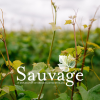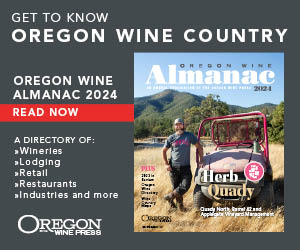Symposium to Talk Future
By Janet Eastman
What does the future hold for Oregon wine? Experts at the Oregon Wine Industry Symposium in Eugene, Feb. 21–23, will present hopes, dreams and, especially, the realities of what’s to come.
This event has quickly become the place for pros to learn how to grow better grapes more efficiently, produce distinct wines that can be marketable worldwide and stay one step ahead of the challenges in the industry and specifically to Oregon.
“We provide attendees with tangible, cutting-edge content they can apply immediately in their vineyards, wineries and in the marketplace,” said Ted Farthing, executive director of the Oregon Wine Board, which produces the event.
Twenty seminars will present the latest viticulture, enology and consumer research as well as new approaches in finance, distribution and social media networking.
“The ultimate goal is to help the industry better satisfy increasingly sophisticated wine lovers around the world,” Farthing said.
For a session on charting a course in harsh economic times, experts from the banking, grape brokerage and market research industries will explain how Oregon can leverage itself in the global wine industry, reap the benefits from its diversification and “find a home,” as Farthing refers to it, for the coming onslaught of grapes from here and California.
UC Davis Viticulture and Enology Professor Roger Boulton will describe his campus’ pilot winery and the winery-of-the-future’s approach to carbon dioxide, water, energy and chemical usage concerns.
Patty Skinkis, a viticulture extension specialist at Oregon State University, will debut a new web-based tool that analyzes grapevine nutrition and diagnoses disease. And a session for those already farming sustainably will explain ways to move beyond organic, Biodynamic and LIVE (Low Input Viticulture and Enology) certifications.
According to the program’s description, “Naysayers are also welcome” to a session on new high-tech winemaking that considers climate change and the twists and turns in the marketplace.
Some of the information unveiled at the symposium is linked to research commissioned by the Oregon Wine Board at a cost of $200,000 a year.
The fee for the three days of seminars and access to a trade show with 120 vendors is $155 for Oregon Wine Association members ($175 for non-members). Attendance at the symposium qualifies for continuing education credits for LIVE certification.
For the first time since the symposium began in 2005, there will also be a one-day symposium on vine physiology, pest identification, conventional and organic chemicals, and year-round resources presented in Spanish by Juan Pablo Valot of Chemeketa Community College. Tickets are $35.
As 550 people who attended last year discovered, the symposium isn’t just about education and research. There will be an Industry Awards Dinner ($105 to $120) prepared by chefs from Portland’s Simpatica Catering & Dining Hall and a technical tasting event ($30 to $35) to test the results of a local closure trial and compare control wines to those treated with new enological technologies.
Online registration (www.oregonwine.org/symposium) closes Monday, Feb. 15.
EVENT INFO
2010 Oregon Wine Industry Symposium
Location: Hilton Eugene
Address: 66 E. Sixth Ave., Eugene
Dates/Times: Feb. 21, 5:30-7:30 p.m. (plus Technical Tasting, 4-5:30 p.m.); Feb. 22, 8:30 a.m.-5:15 p.m. (plus a reception and dinner until 10:30 p.m.); Feb. 23, 8:15 a.m.-5 p.m.
Tickets: $155-$175 for full symposium; $35 for one-day Spanish program
Phone: 503-228-8336 x21
Web: www.oregonwine.org/symposium








